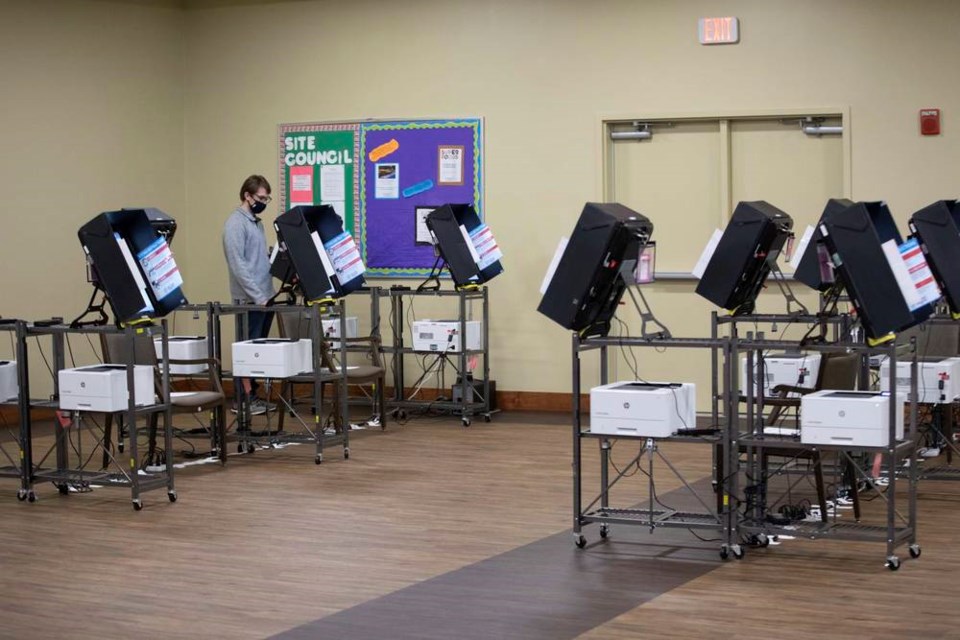Technology has changed the way we adults, and more importantly, our kids, interact with each other.
Researchers tell us that Canadian users of various forms of social media, on average, spend 40 minutes daily on Facebook and that 87% of Facebook users were aged 18-29.
That’s why ethics of technology, in recent years, has increasingly addressed the transitional shift in a society where personal computers provide users with an easy and quick way to transfer information — and misinformation.
Ethics seeks not only to describe moral principles influencing conduct, but to focus on the actions and values of people in society — what people do and how they believe they should act in the world.
Communication via the internet challenges ethical consumer behaviour because it is instantaneous, seamless, interactive, blunt, borderless, impersonal and far-reaching in fundamental ways.
This free expression of opinion, unlike the traditional letter to the editor, allows comments on social media to be posted instantly, often in the heat of emotion. Many users who post comments do so under the mistaken belief that they will remain anonymous.
For these reasons alone, every school-based technology course, every semester every year, should include a unit on the ethical uses of technology, if only to keep youthful users out of trouble by teaching them to recognize the dangers of using social media to attack others.
Reviews of recent “defamation by social media” cases reveal that Canadian courts seem to be moving in a direction that acknowledges not only the dangers of unedited and uncurated content, but also the potentially viral nature of a social-media post.
Courts have found that merely re-posting a hyperlinked article or comment on a user’s own social-media profile may, ipso facto, constitute a re-publication of the defamatory comment. Should a post or repost of the original defamatory comment go “viral,” that will only complicate the impact of the defamation.
And it is not just online social media that has become the primary source for malevolent rumour-spreading, misinformation, innuendo and, on occasion, outright indefensible lies.
Other more traditional forms of media, including TV “news” and “news commentary” presentations, have also been front and centre in blurring, if not eradicating entirely, the previously clear line between truth and fabrication, with few if any consequences.
One company that has decided enough is enough — and that has the financial resources to make its displeasure felt at being the victim of the Trump-fuelled, widely proliferated “stolen election” lie — is the technology company Smartmatic.
Fox News commentator Lou Dobbs and others had been having a field day accusing Smartmatic of helping to rig the 2020 U.S. federal election results.
Smartmatic, in a long-overdue and what may be landmark response, has now filed a $2.7-billion US lawsuit against Dobbs and several other Fox News hosts, and the channel itself.
Apparently Fox, despite the fact that it had been turning a blind eye to the damage Dobbs and other were inflicting on the technology company, discovered a lawsuit-fuelled conscience somewhere in its media policy book and fired Dobbs the day after the lawsuit, which threatened to bankrupt the organization, arrived at Fox offices.
Of greater interest to students of media ethics is the fact that up until that point, Dobbs had enjoyed, without apparent interference from any of his current or previous employers, including CNN and Fox, a long history of unfettered lying about anything and everything.
Over the years of his media celebrity, Dobbs had, without any evidence or any attempt by his employers to restrain him, claimed that an invasion of illegal aliens was threatening the health of many Americans with leprosy, that former U.S. president Barack Obama was not a natural-born U.S. citizen and that the “many” undocumented immigrants who voted in the 2018 mid-term elections had an immense impact on the outcome.
In a recent Tyee piece, Michael Harris, a Tyee contributing editor, highly awarded journalist and documentary maker, suggests that Fox News has certainly not been alone in creating the smorgasbord of lies that some consumers find more palatable than a tedious diet of everyday truth.
Harris, in the piece, opines that study after study shows that readers and viewers have been abandoning mainstream news and shedding their respect for the journalists who produce it while getting more and more of their information from dodgy social media and internet websites.
And the dangers of that are well worth discussing with a classroom full of social-media savvy next-generation political and social policy makers.
gfjohnson4@shaw.ca
Geoff Johnson is a former superintendent of schools.



